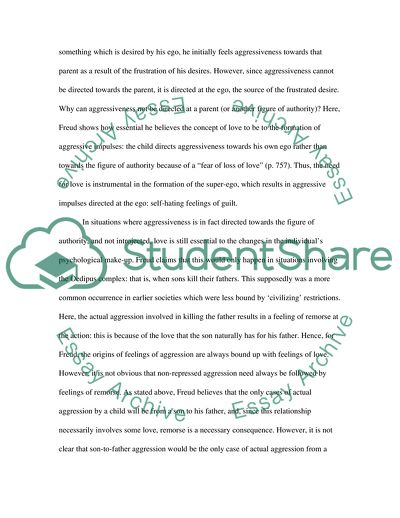Cite this document
(Love and Aggressiveness in Freuds Civilization and Its Discontents Book Report/Review - 1, n.d.)
Love and Aggressiveness in Freuds Civilization and Its Discontents Book Report/Review - 1. https://studentshare.org/philosophy/1703515-discuss-the-relationship-between-love-and-aggressivity-in-freuds-civilization-and-its-discontents
Love and Aggressiveness in Freuds Civilization and Its Discontents Book Report/Review - 1. https://studentshare.org/philosophy/1703515-discuss-the-relationship-between-love-and-aggressivity-in-freuds-civilization-and-its-discontents
(Love and Aggressiveness in Freuds Civilization and Its Discontents Book Report/Review - 1)
Love and Aggressiveness in Freuds Civilization and Its Discontents Book Report/Review - 1. https://studentshare.org/philosophy/1703515-discuss-the-relationship-between-love-and-aggressivity-in-freuds-civilization-and-its-discontents.
Love and Aggressiveness in Freuds Civilization and Its Discontents Book Report/Review - 1. https://studentshare.org/philosophy/1703515-discuss-the-relationship-between-love-and-aggressivity-in-freuds-civilization-and-its-discontents.
“Love and Aggressiveness in Freuds Civilization and Its Discontents Book Report/Review - 1”. https://studentshare.org/philosophy/1703515-discuss-the-relationship-between-love-and-aggressivity-in-freuds-civilization-and-its-discontents.


